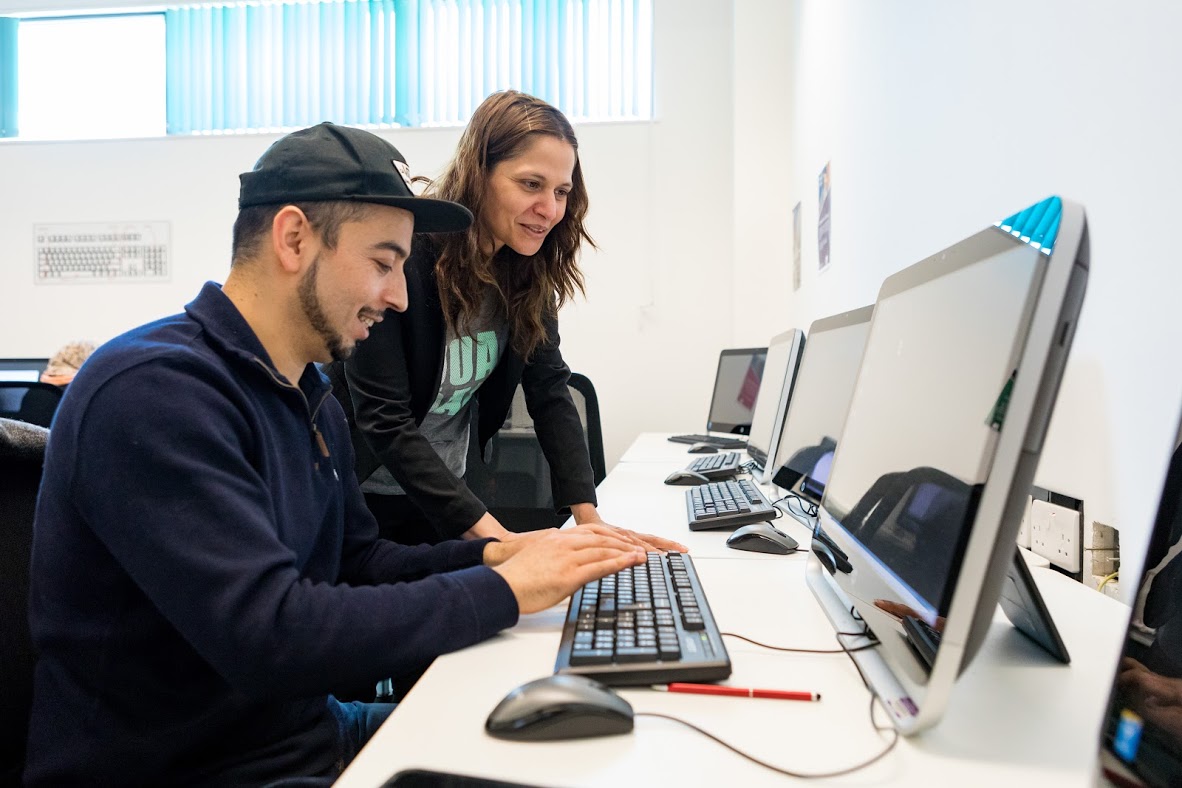My QTLS experience: Tom Hardy
I have been teaching since January 2016, working as a Progress Tutor after graduating from university in 2013. I have been in my current role since April 2017. Prior to this, I taught in the media department at a local sixth form college.
What was your motivation for undertaking QTLS?
I had considered undertaking QTLS after completing my PGCE in 2016, but felt I needed a break from studying. When I changed jobs last year, I was encouraged by senior management within my organisation to complete QTLS so I could be awarded with a professional status which would, ultimately, provide me with better career prospects. Despite recently completing a PGCE, I was keen to explore teacher professionalism further and believed that the process would also help me to better understand Pupil Referral Units (PRUs), as I was relatively new to this type of setting.
What did you like about it?
I enjoyed being able to thoroughly reflect on my practice and tailor it to suit the diverse needs of my learners. The entire process was cyclical: setting specific targets in relation to the teachers’ professional standards enabled me to outline activities that could be undertaken to achieve my aims, as well as the anticipated impact they would have on my students. Furthermore, regularly meeting with my line manager, who acted as my QTLS supporter, helped to further enhance our positive working relationship. Undertaking QTLS also encouraged me to take part in a wide range of CPD which, as well as being extremely thought-provoking, had a positive effect on my practice. Documenting the entire process from start to finish was incredibly straightforward by using the online workbook.
How has QTLS impacted your career?
Gaining QTLS will undoubtedly have a positive impact on my career in the long-term. The hard work and determination I put into the qualification did not go unnoticed by senior management, who are in the process of exploring other opportunities for me within the school. I will also have the chance to apply for posts with additional responsibilities (for example, teaching and learning); something I would not have been able to do previously as they require staff to have QTS or QTLS status.
What impact has it had on your practice and your learners?
Throughout the professional formation process, I believe that I demonstrated a commitment to improving my practice in relation to the teachers’ professional standards. I feel that the quality of my teaching improved due to the use of more creative and innovative strategies, and this has had a positive impact on learner outcomes.
Dedicated reading time was presenting a number of issues within my class and I therefore highlighted this as one of my targets. After observing a colleague and reflecting upon my own practice, I implemented the use of iPads and alternative reading materials. Engagement steadily increased and the sessions gradually became more settled. Some learners preferred reading on iPads while others enjoyed printed content which matched their interests, such as sport and gaming. During the next assessment, most students improved on their reading level. This is just one example of the positive impact QTLS had on my practice and learners.
What impact did it have on your organisation?
As a fairly new member of staff within my organisation at the time I began to undertake QTLS, the process enabled me to develop positive working relationships with colleagues and stakeholders. Meeting with staff from a local mainstream school encouraged an increased dialogue, resulting in receiving more information about learners who needed additional support.
Through taking part in a TeachMeet event with another PRU, I was given the opportunity to discuss good practice as well as reflect on what works well and possible areas for development within my setting. Since achieving QTLS, I have contributed towards the development of a new KS3 assessment model, which is more up-to-date and in line with mainstream schools.
How has it benefited you as a practitioner?
Throughout the QTLS process, I attended a wide range of CPD training events relating to issues encompassing Social, Emotional and Mental Health (SEMH) and Special Educational Needs and Disability (SEND), which enabled me to update my knowledge of educational research. Knowing how best to support my learners is essential within a PRU setting, as the individuals present a wide range of complex needs. Being involved in an Ofsted inspection whilst undertaking QTLS was also an extremely beneficial experience that allowed me the opportunity to discuss teaching, learning and assessment with the lead inspector.
What do you want to do next and how will you continue to develop your practice?
Although I felt that I made significant progress in a range of areas whilst undertaking QTLS, I recognise that the development of my practice is an ongoing process, and something that all professionals are required to follow. Therefore, I am continuing to receive guidance from my line manager to ensure I am able to work towards achieving a new set of targets which will further enhance my professionalism as a teacher.
What advice would you give teachers/trainers who are thinking about undertaking QTLS?
I would highly recommend those thinking about undertaking QTLS to do so. Although I completed a PGCE not long before I began the professional formation process, I did not feel that the activities were repetitive. All elements of QTLS were wholly relevant to my practice and enabled me to see the bigger picture in relation to the diverse needs of my learners. I was still familiarising myself with a PRU environment, having only been in my current role for six months before I began QTLS, and it certainly enabled me to better understand my setting.

check your eligibility and apply for QTLS QTLS - Professional Formation
QTLS is the badge of professionalism for post-14 education and training. It’s aimed at helping you advance your career and to demonstrate your expertise and experience to your colleagues, employers and learners.
Find out more about QTLS
